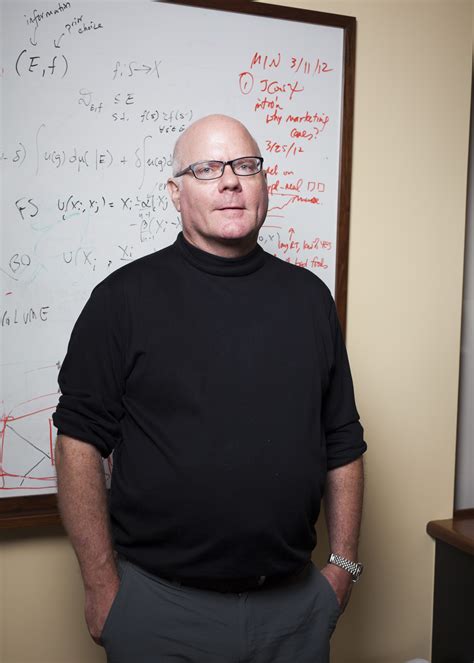A Quote by Thomas Lovejoy
Genetic engineers don't make new genes, they rearrange existing ones.
Related Quotes
Natural species are the library from which genetic engineers can work. Genetic engineers don't make new genes, they rearrange existing ones. Speaking as World Wildlife Fund Executive Vice President, stating the need to conserve biodiversity, even plants and animals having no immediate use, as a unique repository of genes for possible future biogengineering applications.
Superficially it's a problem if homosexuality is genetic - if the difference between people's sexual preferences is genetic - because at least a pure homosexual would be unlikely to reproduce and therefore pass on the genes. So the first question you ask is, is it actually genetic, and the answer is probably to some extent yes.
Epigenetics doesn't change the genetic code, it changes how that's read. Perfectly normal genes can result in cancer or death. Vice-versa, in the right environment, mutant genes won't be expressed. Genes are equivalent to blueprints; epigenetics is the contractor. They change the assembly, the structure.
Charles Darwin and I and you broke off from the family tree from chimpanzees about five million years ago. They're still our closest genetic kin. We share 98.8 percent of the genes. We share more genes with them than zebras do with horses. And we're also their closest cousin. They have more genetic relation to us than to gorillas.
Recently, results of the Human Genome Project have shattered one of Science's fundamental core beliefs, the concept of genetic determinism. We have been led to believe that our genes determine the character of our lives, yet new research surprisingly reveals that it is the character of our lives that controls our genes. Rather than being victims of our heredity, we are actually masters of our genome.
The choices you make each day in your diet and lifestyle have a direct influence on how your genetic predisposition is expressed - for better and for worse. You're only as old as your genes, but how your genes are expressed may be modified by exercise, diet and lifestyle choices much more than had previously been believed - and more quickly.
We can now determine, easily and relatively cheaply, the detailed chemical architecture of genes ; and we can trace the products of these genes ( enzymes and proteins ) as they influence the course of embryology . In so doing we have made the astounding discovery that all complex animal phyla - arthropods and vertebrates in particular - have retained, despite their half-billion years of evolutionary independence, an extensive set of common genetic blueprints for building bodies.
Perhaps, you know, new laws, new domains of potential openness are occurring as the universe ages, and complexity previously disallowed is now possible, and we are that complexity. We are nature moving out of its genetic phase - a phase under the control of chemical genes, which are physical structures, in to an epigenetic phase, a phase of culture ruled by codes, transformable culturally confined codes - mathematics, religion, philosophy, art, dance, humor.































